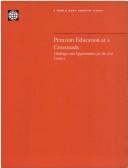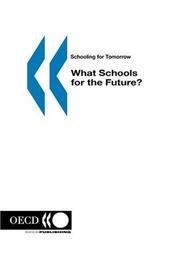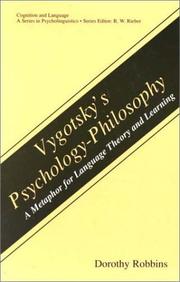| Listing 1 - 10 of 68 | << page >> |
Sort by
|
Book
ISBN: 9789264295001 Year: 2001 Publisher: Paris : OECD Publishing,
Abstract | Keywords | Export | Availability | Bookmark
 Loading...
Loading...Choose an application
- Reference Manager
- EndNote
- RefWorks (Direct export to RefWorks)
A quoi ressemblera l’école de demain ? Quelles sont les grandes tendances qui influent le plus sur l’éducation et de quelle façon vont-elles se manifester dans les prochaines années ? A quels problèmes de fond faut-il s’attaquer aujourd’hui pour ouvrir dans ce domaine des perspectives d’avenir favorables ? Ces ambitieuses questions sont traitées dans Quel avenir pour nos écoles ?, publication du Centre pour la recherche et l’innovation dans l’enseignement (CERI) de l’OCDE. A partir d’un ensemble très fourni de données internationales provenant d’études statistiques et de travaux de recherche, cet ouvrage analyse les tendances à l’œuvre au XXIe siècle dans les domaines social et économique et dans celui de l’éducation. Il présente aussi six scénarios possibles d’évolution des systèmes scolaires pour les dix à vingt prochaines années. Cet exposé est complété par les contributions de huit experts internationaux qui examinent sous des angles différents les défis auxquels l’école est confrontée aujourd’hui et ceux qu’elle devra relever demain. Cet ouvrage intéressera tous ceux qui se préoccupent de l’évolution à long terme de l’éducation : décideurs et administrateurs, praticiens, chercheurs, parents et grand public.
Education --- Children --- Education, Primitive --- Education of children --- Human resource development --- Instruction --- Pedagogy --- Schooling --- Students --- Youth --- Civilization --- Learning and scholarship --- Mental discipline --- Schools --- Teaching --- Training
Book
ISBN: 8884530180 Year: 2001 Volume: 1 Publisher: Firenze : Firenze university press,
Abstract | Keywords | Export | Availability | Bookmark
 Loading...
Loading...Choose an application
- Reference Manager
- EndNote
- RefWorks (Direct export to RefWorks)
Education. --- Children --- Education, Primitive --- Education of children --- Human resource development --- Instruction --- Pedagogy --- Schooling --- Students --- Youth --- Education --- Civilization --- Learning and scholarship --- Mental discipline --- Schools --- Teaching --- Training

ISBN: 0821349619 9786610088461 128008846X 0585477485 Year: 2001 Publisher: Washington, D.C. : World Bank,
Abstract | Keywords | Export | Availability | Bookmark
 Loading...
Loading...Choose an application
- Reference Manager
- EndNote
- RefWorks (Direct export to RefWorks)
Sociology of education --- Third World: economic development problems --- Peru --- Education --- Children --- Education, Primitive --- Education of children --- Human resource development --- Instruction --- Pedagogy --- Schooling --- Students --- Youth --- Civilization --- Learning and scholarship --- Mental discipline --- Schools --- Teaching --- Training --- Economic aspects
Multi
ISBN: 9057301660 9789057301667 Year: 2001 Publisher: Zutphen : Walburg pers,
Abstract | Keywords | Export | Availability | Bookmark
 Loading...
Loading...Choose an application
- Reference Manager
- EndNote
- RefWorks (Direct export to RefWorks)
Suriname --- Education --- History --- -Children --- Education, Primitive --- Education of children --- Human resource development --- Instruction --- Pedagogy --- Schooling --- Students --- Youth --- Civilization --- Learning and scholarship --- Mental discipline --- Schools --- Teaching --- Training --- Theses --- History. --- -History --- Suriname. --- Children --- Education - Suriname - History

ISBN: 1280083263 9786610083268 9264195009 9789264195004 9264195262 Year: 2001 Publisher: Paris : OECD Publishing,
Abstract | Keywords | Export | Availability | Bookmark
 Loading...
Loading...Choose an application
- Reference Manager
- EndNote
- RefWorks (Direct export to RefWorks)
What will schools look like in the future? What big trends are most influential in shaping education and how might these unfold in coming years? What policy questions need to be tackled today to open up desirable pathways into the future? These ambitious questions are addressed in What Schools for the Future?, a publication produced by the OECD's Centre for Educational Research and Innovation (CERI). Drawing on an extensive international body of statistical and research evidence, the book analyses the social, economic, and educational trends of the 21st century. It also presents six possible scenarios for school systems over the next 10-20 years. The analysis is completed by contributions from eight international experts, looking with different perspectives at the challenges facing schools today and tomorrow.
Education -- Forecasting. --- Education. --- Education --- Theory & Practice of Education --- Social Sciences --- Forecasting --- Forecasting. --- Children --- Education, Primitive --- Education of children --- Human resource development --- Instruction --- Pedagogy --- Schooling --- Students --- Youth --- Civilization --- Learning and scholarship --- Mental discipline --- Schools --- Teaching --- Training
Periodical
ISSN: 17298091 Year: 2001 Publisher: [Guantánamo, Cuba] : Centro de Investigación Científico Técnica de la Universidad de Guantánamo,
Abstract | Keywords | Export | Availability | Bookmark
 Loading...
Loading...Choose an application
- Reference Manager
- EndNote
- RefWorks (Direct export to RefWorks)
sociology --- didactics --- education and innovation --- Education --- Education. --- Children --- Education of children --- Education, Primitive --- Human resource development --- Instruction --- Pedagogy --- Schooling --- Students --- Youth --- Civilization --- Learning and scholarship --- Mental discipline --- Schools --- Teaching --- Training
Book
ISBN: 8884530229 Year: 2001 Volume: 1 Publisher: Firenze : Firenze university press,
Abstract | Keywords | Export | Availability | Bookmark
 Loading...
Loading...Choose an application
- Reference Manager
- EndNote
- RefWorks (Direct export to RefWorks)
Education. --- Teaching. --- Didactics --- Instruction --- Pedagogy --- School teaching --- Schoolteaching --- Children --- Education, Primitive --- Education of children --- Human resource development --- Schooling --- Students --- Youth --- Education --- Instructional systems --- Pedagogical content knowledge --- Training --- Civilization --- Learning and scholarship --- Mental discipline --- Schools --- Teaching

ISBN: 0335202993 0335203000 Year: 2001 Publisher: Buckingham Open university press
Abstract | Keywords | Export | Availability | Bookmark
 Loading...
Loading...Choose an application
- Reference Manager
- EndNote
- RefWorks (Direct export to RefWorks)
Educational sciences --- Consumer behavior --- Sociology of culture --- Education --- -Commercialism in schools --- #SBIB:309H040 --- #SBIB:316.7C131 --- #SBIB:022.AANKOOP --- Schools --- Children --- Education, Primitive --- Education of children --- Human resource development --- Instruction --- Pedagogy --- Schooling --- Students --- Youth --- Civilization --- Learning and scholarship --- Mental discipline --- Teaching --- Training --- Marketing --- Populaire cultuur algemeen --- Cultuursociologie: jeugdcultuur --- Commercialism in schools. --- Pedagogiek en onderwijskunde --- Marketing. --- handboeken en inleidingen --- handboeken en inleidingen. --- Commercialism in schools

ISBN: 0306464233 146135482X 146151293X Year: 2001 Publisher: New York, N.Y. Kluwer Academic
Abstract | Keywords | Export | Availability | Bookmark
 Loading...
Loading...Choose an application
- Reference Manager
- EndNote
- RefWorks (Direct export to RefWorks)
You hold in your hands a new book. Professor Dorothy Robbins dedicated it to one of the aspects of the cultural heritage of the famous psychologist L. S. Vygot sky. His activity (deyatelnost) was multifaceted. He had input into different fields of psychology: its methodology, psychology of art, pathopsychology, the psy chology of child and adolescent development, pedagogical psychology, general psychology, speech psychology, and other fields. Within his various activities he enriched not only psychology, but a variety of different sciences/academics pedagogics, defectology, psychiatry, literary critical theory, and linguistics. Some famous scientists feel that he left his mark in fields of various scientific areas that did not exist during his lifetime-such as psycho linguistics, semiotics, and cybernetics. Many psychologists and linguists conduct research in the spirit of his ideas that are contained within his approach of cultural-historical theory of human psy chological development, all created by Vygotsky as early as the 1920s and 1930s; these ideas have become popular among scientists in different countries in the last decades. The use of Vygotsky's theories, even beyond the frame of psychol ogy, turns out to be fruitful. I hope that this new book by Dorothy Robbins will help readers understand the deeper meaning of the scientific/academic research undertaken by my father and the scientific results that were obtained by him.
Psycholinguistics --- Vygotsky, Lev Semënovic --- Psychology --- Experimentele psychologie --- History. --- psycholinguistiek --- psycholinguistiek. --- Cognitive psychology. --- Linguistics. --- Education. --- Cognitive Psychology. --- Linguistics, general. --- Education, general. --- Children --- Education, Primitive --- Education of children --- Human resource development --- Instruction --- Pedagogy --- Schooling --- Students --- Youth --- Civilization --- Learning and scholarship --- Mental discipline --- Schools --- Teaching --- Training --- Linguistic science --- Science of language --- Language and languages --- Psychology, Cognitive --- Cognitive science --- Education
Book
ISBN: 9052613796 9789052613796 Year: 2001 Publisher: Schoonhoven Academic service
Abstract | Keywords | Export | Availability | Bookmark
 Loading...
Loading...Choose an application
- Reference Manager
- EndNote
- RefWorks (Direct export to RefWorks)
bedrijfsopleidingen --- onderwijs --- Personnel management --- HRM (human resource management) --- Cadres Kaderleden --- Développement des ressources humaines Human resource development --- Enseignement supérieur Hoger onderwijs --- Formation continuée Permanente opleiding --- Formation du personnel Opleiding van het personeel --- Gestion des compétences Competentiemanagement --- Programmes de formation Opleidingsprogramma's
| Listing 1 - 10 of 68 | << page >> |
Sort by
|

 Search
Search Feedback
Feedback About UniCat
About UniCat  Help
Help News
News